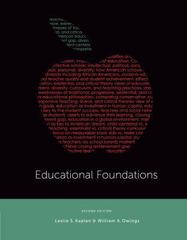- What is the central ethical conflict in this case?
- How would you have responded to the conflict in question?
- What complications or "gray areas" do you identify?
The problems at WorldCom were discovered during an internal audit and brought to the attention ofthe company's new auditors, KPMG. A different firm, Arthur Andersen, served as WorldCom's auditors during the period covered by the alleged accounting scandal. Arthur Andersen maintained that the details ofthe accounting fraud were kept from them by senior WorldCom management. The rm's controller and chief na ncial officer (CFO), who was a former KPMG employee, were red after the alleged accounting frauds were revealed. WorldCom's CEO maintained that he knew nothing of the accounting decisions made by the CFO, but many observers question how almost $8 billion in expenses could slip by senior management.\"5 According to an Associated Press article that ran on September 27, 2002, \"the former controller of WorldCom, lnc., pleaded guilty to securities fraud charges, saying he was instructed by 'senior management: to falsify records. His plea was the first admission of guilt\" to come out of what was at the time the largest corporate accounting scandal in U.5. history." Subsequently, the controller, the director of general accounting, the CFO, and the CEO were all sentenced to prison time, and the CFO and CEO forfeited personal assets valued at millions of dollars to settle lawsuits by investors.13 Why is this classic fraud still relevant today? Clearly, the answer to the question "Is 'just following orders' an acceptable excuse?\" is an emphatic \"No!\" And yet, in the recent Volkswagen emissions scandal discussed in Chapter 1, we find the same i55ue yet again. As one reporter asked, \"Is a culture of 'just following orders' so ironclad in Wit that in six years no one questioned those orders and no one refused to obey them? If so, until the culture is changed, the danger to customer and environmental safety will remain unacceptably high.\" Managers and accountants exist on the front lines of this ethical challenge.\" What ethical issues are invotved here? What steps shouio' managers at WoridCom and Voikswagen have taken?First, review the Institute of Management Accountants' Statement ofEthicat Professions! Practice at the end of Chapter 1. FOCUS ON ETHICS ETHICS 101: IS \"JUST FOLLOWING ORDERS\" AN ACCEPTABLE EXCUSE? In one of the classic ethics debacles of recent decades, the company Worldcom, Inc., was bankrupted when manipulation of expenses and income destroyed investor condence, leaving the company unable to meet its financial obligations. Worldcom had grown through a series of mergers and acquisitions to become the nation's second-largest long-distance telecommunications company. Its core communication services included network data transmission over public and private networks. Trouble arose for WorldCom because of the immense overcapacity in the telecommunications industry due to overly optimistic growth projections during the early years of Internet growth. In June 2002, the company disclosed that it had overstated earnings for 2001 and the first quarter of 2002 to the tune of $3.8 billion. The overstatement arose because the company intentionally misclassified period expenses as capital expenditures. This maneuver had two major effects on the company's nancial statements: the company's assets were artificially inated and the capitalization allowed the company to spread the recognition of its expenses into the future, which increased net income in the current period. The expenses in question related to line coststhe fees that a telecom company pays to outside providers for access to their communications networks. In addition, the company announced in July 2002 that it had also manipulated reserve accounts. which affected another $3.8 billion in earnings in 1999 and 2000. {A reserve account can be used to store costs as an asset on the balance sheet until they are subsequently converted to expenses, similar to the operation of fixed assets and depreciation. When the costs are held as reserves longer than they should be, income is overstated in the short run.) The problems at WorldCom were discovered during an internal audit and brought to the attention of the company's new auditors, KPMG. A different firm. Arthur Andersen, served as WorldCom's auditors during the period covered by the alleged accounting scandal. Arthur Andersen maintained that the details ofthe accounting fraud were kept from them by senior WorldCom management. The firm's controller and chieffinancial ofcer {CFO}, who was a former KPMG employee, were fired after the alleged accounting frauds were revealed. WorldCom's CEO maintained that he knew nothing ofthe accounting decisions made by the CFO, but many observers question how almost $8 billion in expenses could slip by \"n: nnnnnnnnnnn +16








